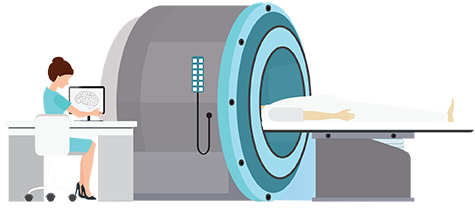

As a medical imaging professional, you will play a vital role in diagnosing diseases and illnesses by capturing images of the inside of the body. Becoming a radiology or ultrasound professional starts with a formal education in medical imaging. You can complete a certificate, associate or bachelor’s degree program. A common path is a certificate or associate program, but the required degree will vary based on each radiology profession. To learn more about some common professions in the field, check out the information below.
To learn more about radiology programs in Wisconsin, as well as related careers and salaries, keep reading.
A job as a radiologic technologist is a common position in the field of medical imaging. Here you can see a step-by-step guide on how to pursue this career.
If you’re interested in pursuing a career in radiology, you are probably interested in learning the average salaries in Wisconsin for each profession in the field. Here are the salaries for the most common jobs.
| Career | Total Employment | Annual Mean Wage |
|---|---|---|
| Cardiovascular Technologists and Technicians | 1,190 | 53,780 |
| Diagnostic Medical Sonographers | 1,610 | 75,760 |
| Magnetic Resonance Imaging Technologists | 980 | 68,390 |
| Nuclear Medicine Technologists | 300 | 77,150 |
| Radiologic Technologists | 4,260 | 58,010 |